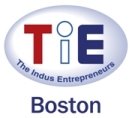Steve Maxwell (bio) is managing director of J. Robert Scott, an executive search firm. He met with SLP Boston for our weekend workshop to answer question on startup development. Our primary focus surrounded the question of, what resources do you need to build your team?
On the interview process:
Nearly 50% of all new hires are mistakes according to Steve. An “A” team can turn around a “B” idea, but a “B” team can kill an “A” idea. Success in building a team starts at the interview, you need to have a good process that can accurately assess the individuals. A few key takeaways for the interview process:
• Identify the key competencies you want and develop metrics to evaluate each candidate during the interview.
• A few categories may include: intellect, track record, personal traits, interpersonal skills, management style, leadership, motivation, and domain knowledge.
• The interview should be split into two aspects, one that focuses on background to assess if the candidate did what he or she claims on his or her resume. The other is to have the candidate provide examples of successes and failures.
• A final interview should be detailed, and last about two hours. This part of the interview should focus on the key accomplishments of the individual.
• References are extremely important to making hiring decisions. Each candidate should provide four to six references.
• Keep questions open ended so the candidate is not cornered into one response.
• Encourage internal referrals with monetary compensation to employees if needed.
On employees:
Employees should be encouraged to take part in the recruiting process. Everyone at the company should be able to give an elevator pitch that explains what the company does. When a new employee is hired, be ready for his or her arrival on the start date and do office introductions. Also, share feedback from the interview process to the candidate. Make sure the new employee understands the style and culture that you are trying to build. When you make a mistake with a new hire, observe the three Ds:
Deal with it: talk to employee
Document: write down everything you discussed.
Decide: stick to a timeline and take action.
On being a CEO:`
Being a CEO is a tough job! Steve has sourced CEO’s for many startups. CEOs know that they have a lonely job because within your company you have no peers. Steve suggests leveraging outside relationships with other CEOs as a resource. He also encourages building strong relationships with board members and encourages a formal review process with the board. Finally, know when the right time to replace yourself, if the job becomes too much to bear, you may find a replacement will bring you relief to concentrate on other things!
J. Robert Scott’s compstudy about compensation. 2 weeks of unlimited access to its thorough database is offered to readers of the SLP blog. Use the login information below:
Compstudy.com/user/register
Code: Mexwell2011
This blog has moved to www.startupleadership.com. Thanks for reading
Subscribe to:
Post Comments (Atom)








No comments:
Post a Comment